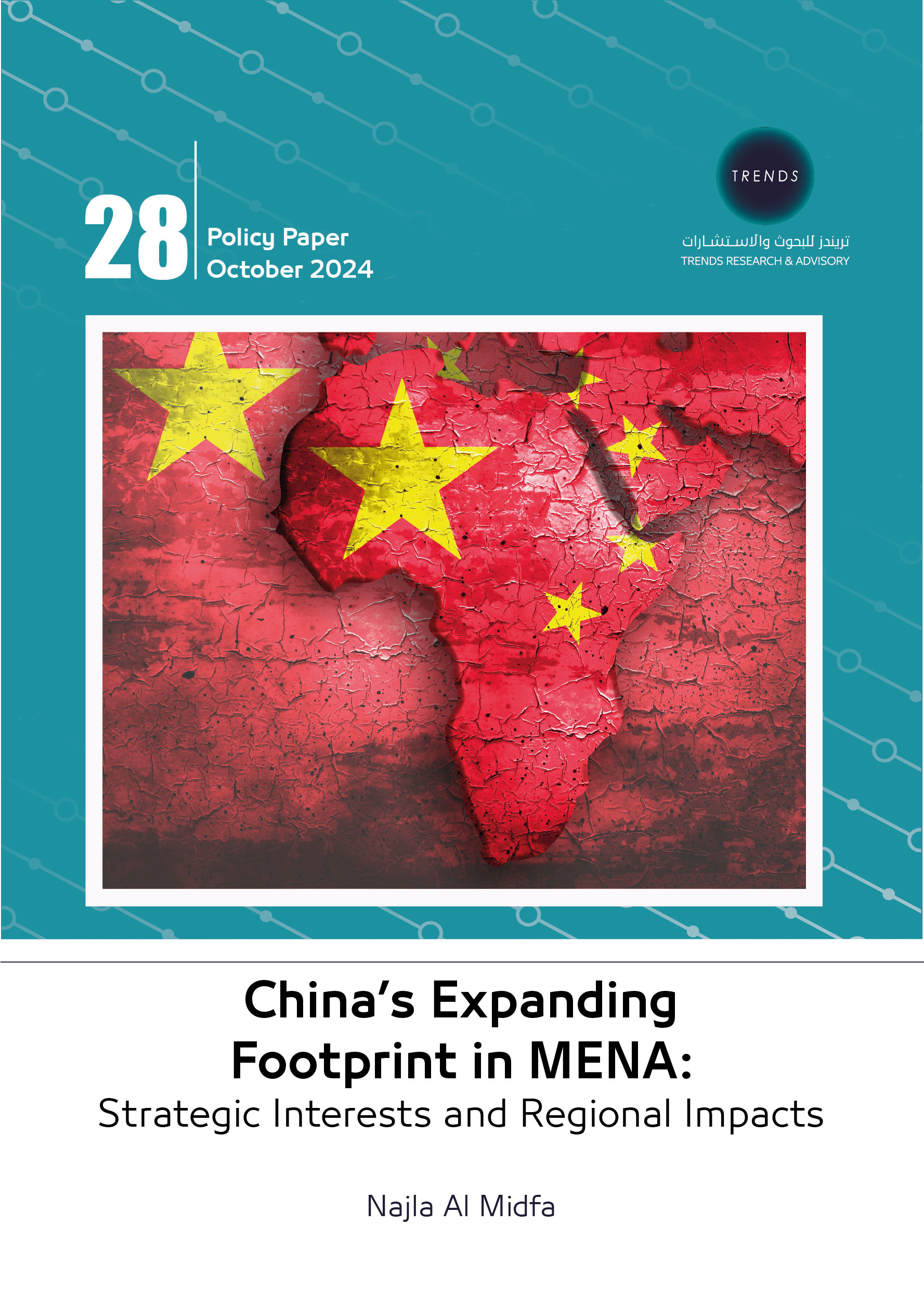As a rising global power, China’s involvement in the Middle East and North Africa (MENA) has become increasingly pivotal to its foreign policy. Amid evolving geopolitical dynamics and regional tensions, China has forged strong bilateral relations with many MENA nations. Over the past decade, this involvement has intensified, driven by a combination of strategic interests, economic goals, and diplomatic initiatives. The launch of the Belt and Road Initiative (BRI) in 2013 accelerated China’s engagement with the region, deepening and diversifying collaboration in economic, political, and infrastructural domains. China’s “non-interventionist” approach appeals to many Middle Eastern countries, which view strengthened ties with Beijing as a path toward economic diversification and stability.
China’s growing influence in the Middle East aligns with its strategic objectives of securing energy resources, enhancing regional influence, and strengthening political and economic ties with Gulf Cooperation Council (GCC) countries. As one of the largest purchasers of oil from the Gulf—particularly from Iran, Saudi Arabia, and the United Arab Emirates (UAE)—China is solidifying its role as a key player in the region, ensuring a steady energy supply while fostering closer relationships with these pivotal states.
This policy paper will examine China’s growing influence in the MENA region, focusing on its strategic, economic, and political interests, the diplomatic tools it employs to enhance its presence, and the broader impacts on regional geopolitics and economic development. It will also provide key recommendations for MENA policymakers on how to navigate relations with China, including strategies to maximize economic benefits through diversified partnerships, enhance regional bargaining power, safeguard national interests in critical sectors such as technology and infrastructure, and balance relationships with other global powers while maintaining autonomy in foreign policy decision-making.




